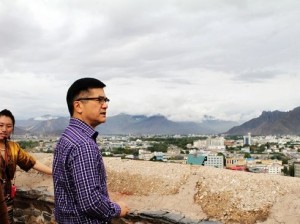Tibetan advocacy groups faced ‘deep disappointment’ at the conclusion of the two-day annual G8 summit on June 18, as the international assembly had failed to bring up the situation in Tibet. The final joint communiqué also withheld mention of China’s bullying of individual nations who show support towards His Holiness the Dalai Lama. This exclusion of Tibet occurred despite an earlier 10,000 strong petition calling on G8 leaders to take initiative on new diplomacy towards Tibet.
Regardless of the apparent setback, other international leaders have not hesitated to voice their support for Tibet. On June 4, the governor of the US state of Washington, Jay Inslee, expressed his deep concern for the Tibetan situation. He spoke in favour of House Resolution 1077, demanding that the Chinese government end its crackdown in Tibet and enter into a dialogue with His Holiness the Dalai Lama to resolve the problems. Inslee met His Holiness in Dharamshala in 2008 as part of a bipartisan Congressional delegation.
Two days earlier, the International Federation for Human Rights (FIDH) adopted a resolution at its 38th World Congress in Istanbul, Turkey, requiring the Chinese government to amend its approach in discussing the issue of Tibet. In light of the recent self-immolations, FIDH called on the international community ‘to press the new Chinese leadership to end the military buildup and limit the dominance of the security apparatus in the Tibetan areas.’
The situation in Tibet has also appeared in the spotlight on a domestic level, following a call for review of Tibet policy by Indian political parties on June 18. Preceding next year’s general elections, the Arunachal Pradesh unit of the Nationalist Congress Party urged the central and state governments to conduct an ‘early review’ of India’s policy towards China, and support the Tibetan cause. Party leaders pointed to the recent self-immolations as a grave situation that must be addressed. A Tibet support group has been formed within the state by prominent cross-party leaders to pledge their unconditional support for Tibet.





 Print
Print Email
Email